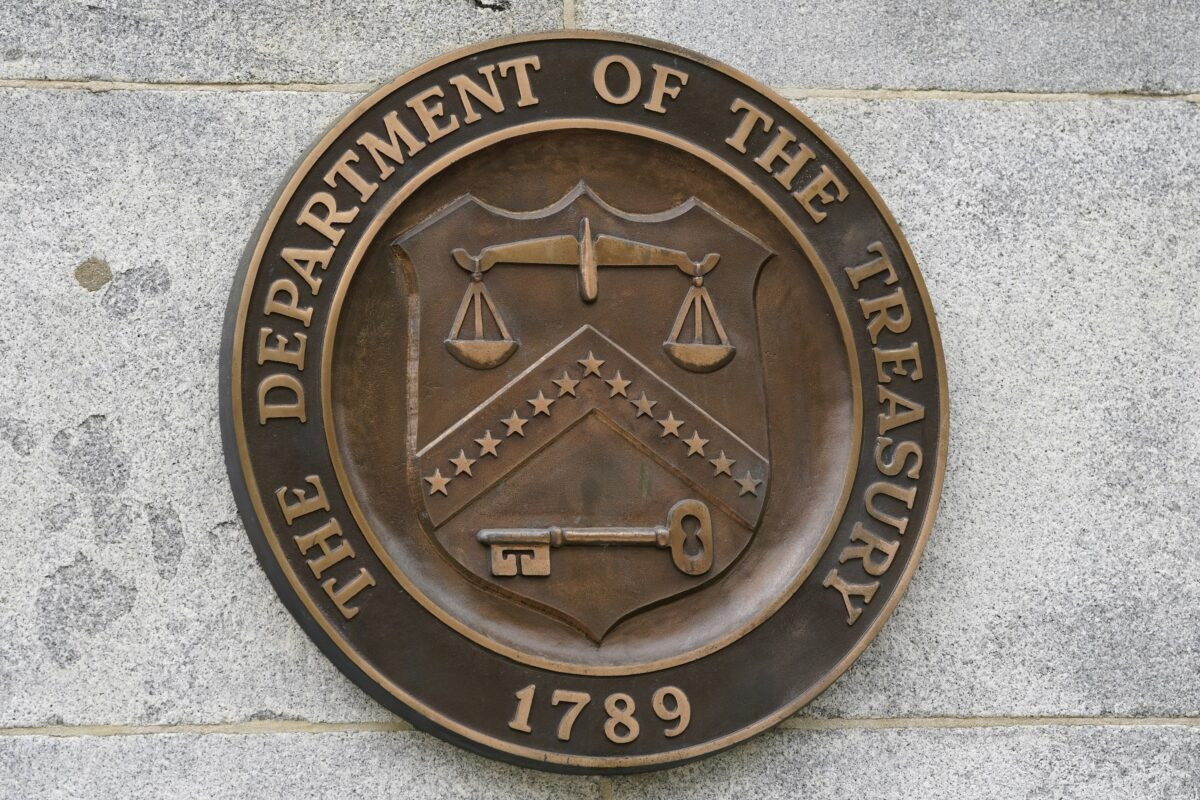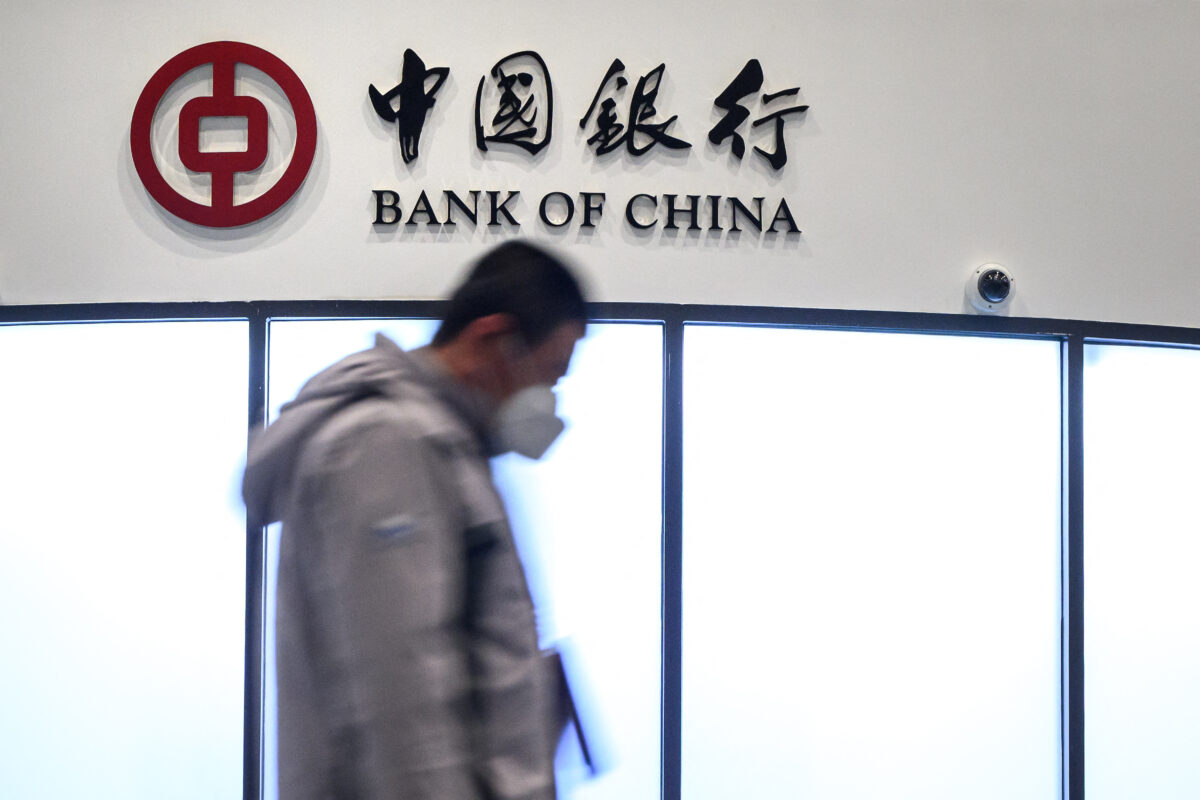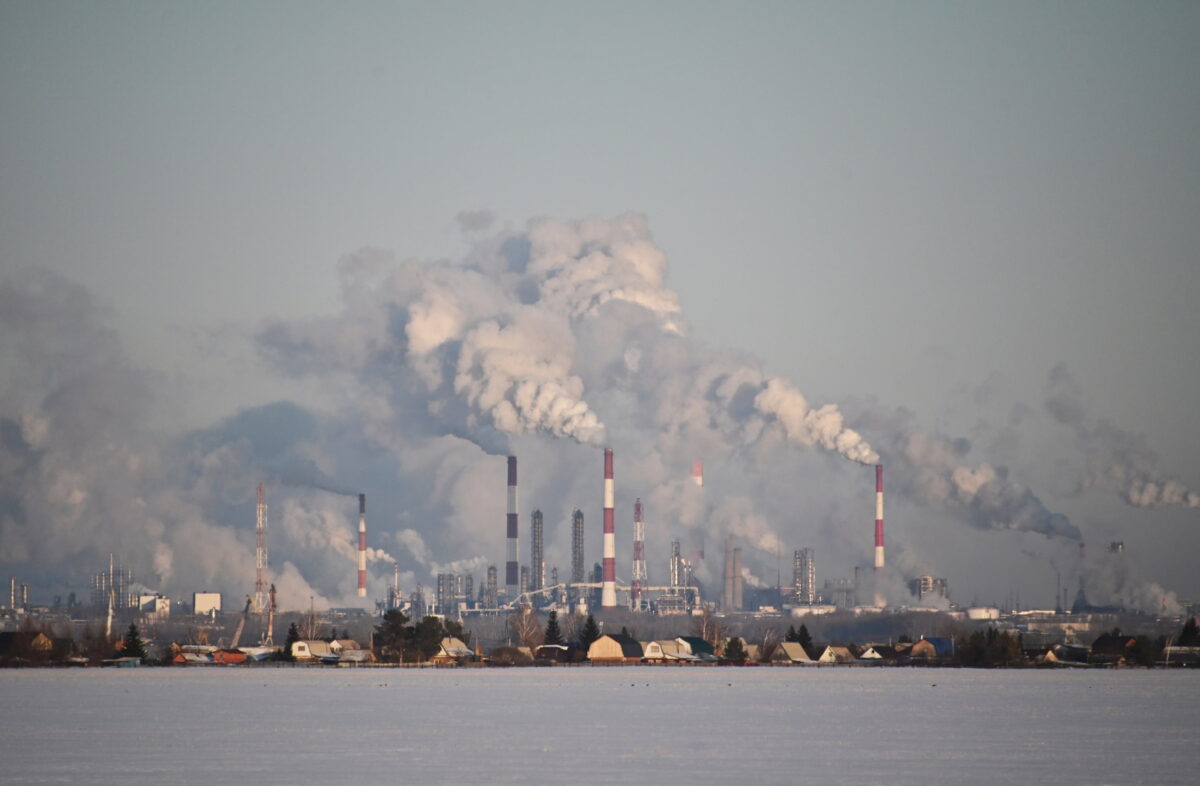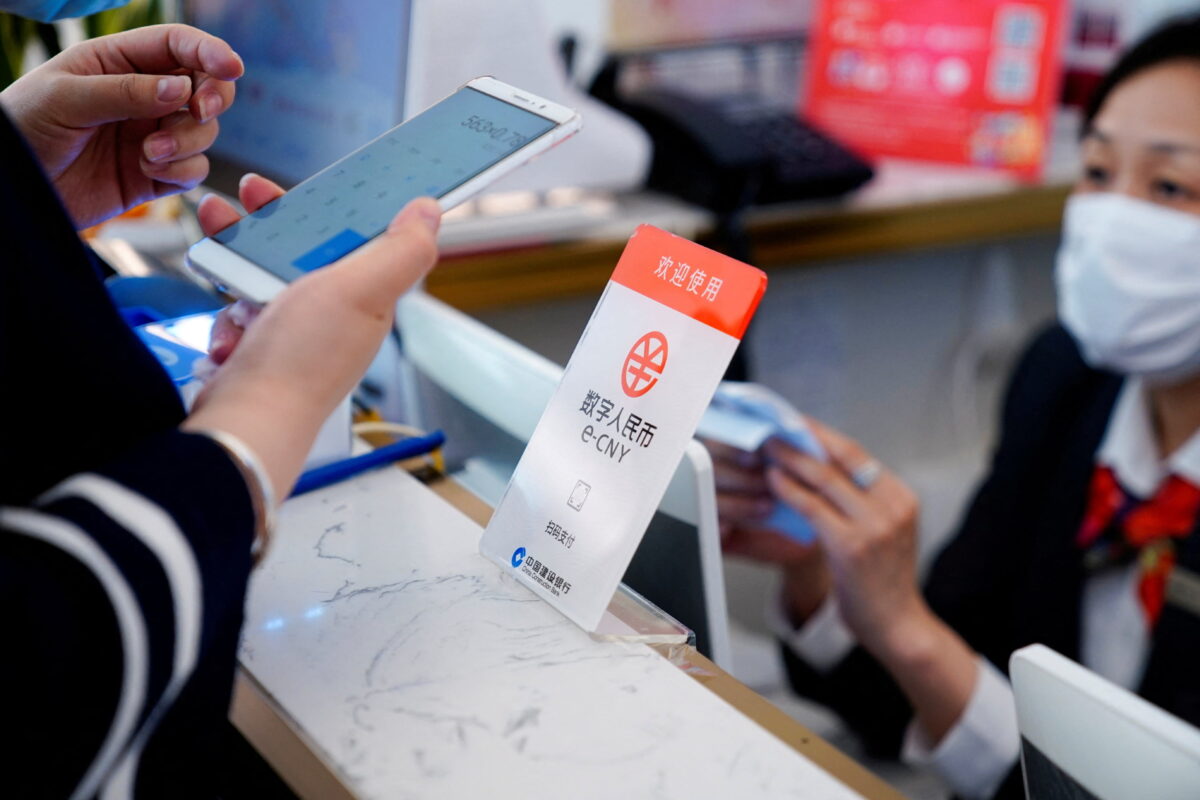
Russian President Vladimir Putin spent nearly a decade developing a “Fortress Russia” strategy to mitigate the impact on his nation and its financial institutions from Western sanctions before launching his February 2022 invasion of Ukraine.
That strategy, which included an accelerated “de-dollarization” effort since 2014, has failed in the face of stiff sanctions imposed by the United States and its allies and partners, which were not only unprecedented in scale and scope but equally unprecedented for the unity in which they were implemented, freezing more than $300 billion in Russian assets in banks after the invasion.
That is unlikely to happen, however, should the United States try to rally the international community to impose blanket sanctions across financial institutions, banks, and corporations in China, panelists at a May 16 Center for Strategic and International Studies (CSIS) forum agreed.
“There is a big difference. China is confident that it’s too big to sanction and it’s banking on that,” said Maria Shagina, a Diamond-Brown senior research fellow for Economic Sanctions, Standards, and Strategy at the London-based International Institute for Strategic Studies (IISS).
“They absolutely view their huge trade, and their dominance of important supply chains, as being their fundamental aid” in thwarting sanctions should they be imposed by the U.S.,” said Barry Naughton, the So Kwan Lok chair of Chinese International Affairs at the School of Global Policy and Strategy at the University of California San Diego.
“There are so many merchandise areas where the U.S. and other Western countries are very, very dependent on China,” continued Naughton, co-author of a January CSIS report titled “CCP Inc.: The Reshaping of China’s State Capitalist System.”
“I think they [China] are in a period now where they’re saying, ‘Actually, we should intensify the dependence of other countries on us in these merchandise areas so they [the West] don’t have as free a hand to initiate sanctions,’” he said.


If China’s communist regime, for example, follows through with its threats to invade Taiwan, demanding a global “decoupling from China,” as President Joe Biden is expected to call for in an anticipated executive order, there may not be as unified a response as there was in sanctioning Russia after its Ukraine invasion, said Martin Chorzempa, a senior fellow at the Washington-based Peterson Institute for International Economics (PIIE).
“If Chinese banks actually find themselves on the sanction list as a result, say, of a mainland invasion of Taiwan, that would be catastrophic for many of them. Right now, there’s [a] very limited alternative, and that makes them very, very nervous about this,” he said.
On the other hand, Chorzempa said, “Due to … the global spillover effects that would have, the costs [of sanctions] would be immense to the United States in putting major China banks—not like the little Bank of Quinlan, Bank of Dandong, or North Korea sanctions [on] specialized institutions—but if you put a Bank of China and ICBC [Industrial and Commercial Bank of China] on those lists, you have immense ripple effects around the world.
“That doesn’t mean it is not going to happen,” he continued. “It doesn’t mean Congress won’t pass some law that would require [sanctioning] them, even if the people in the Treasury Department know just how costly that would be.”


Therefore, in assessing the effectiveness of sanctions against other nations, Beijing “recognizes at the most important level that they have to make it too expensive and too risky for the United States to impose major financial sanctions on China, and if you look at the U.S. policy response to all of the perceived issues with China in tech and elsewhere, you’d see that sanctions is one thing that really hasn’t been used very much.”
Naughton said the United States certainly wouldn’t get the same unity from European countries in sanctioning China as it did against Russia.
“The shared sense of threat that existed in the Russia-Ukraine case definitely does not exist in the China case, so if I were thinking from the perspective of a Chinese official, I would be much more concerned with unilateral U.S. sanctions” than from Europeans and even some western Pacific countries such as Singapore, he said.
But China does have vulnerabilities, the panel moderated by CSIS Economics Program Senior Fellow Gerard DiPippo, noted. While China may have manufacturing and trade dominance, the United States still maintains its post-World War II dominance of the “global financial infrastructure.”
The one-hour discussion, “Chinese Assessments of Counter Sanctions Strategies,” focused on three policy papers published in Chinese state media, written in August and October, and read by CSIS staffers routinely. Two of the papers were written by authors who work for China’s central bank, and one is a member of the Shanghai Academy of Social Sciences.
Chorzempa said at least one of the papers claimed the “weaponization of global public goods” by the United States has been “enabled by the hegemonic position of the U.S. dollar and United States financial institutions. There are not many alternatives to the U.S. dollar right now.”
All three panelists pointed to inaccurate assumptions in the papers.
In one, the author said in assessing sanctions against Iran that “the U.S. imposed the sanctions in order to get people to stop investing in Iran and instead to go to the U.S. dollar to kind of attract capital and scare people away from other countries,” Chorzempa said. “I don’t think that’s accurate. It shows that there is a pretty dark view in China … of the motivations that the U.S. has when imposing sanctions.”
“Some of it is true, that we are in an era of weaponization of finance, but some of the pictures are too black and white,” Shagina said, including in reference to Russia that the United States is “the only” nation involved, that it “masterminded Western sanctions, so there is zero agency for the EU or the UK” when both have imposed sanctions on Russia independent of the United States.
The articles state that as a result of the sanctions, Europe was facing “doom-and-gloom scenarios” that include its “worst energy crisis ever” and that there is a “backlash that the weaponization of finance has triggered, this ‘de-dollarization,’” which are exaggerations, she said.
“We know now that Europe is not in the worst energy crisis ever. Prices have come down, gas storage is better than it was before,” Shagina said, before cautioning when it comes to next winter, “We’re not out of the woods.”
The authors cite as a “successful example” Russia’s rubles for gas payments program, she said. “Well, that hasn’t been successful. Many European countries simply dropped contracts with [Russia’s] Gazprom, and now we know that Russian gas has dropped 70 percent” in price.


Shagina said one article discussed how Russia and India were in talks about national currency payment exchanges. “The talks were abandoned because neither Russia nor India need each other’s currencies,” she said.
The articles “actually diagnose the Russia issue,” Chorzempa said. “They say that Russia failed in its ‘Fortress Russia’ strategy and … say, ‘We need to improve, hold each other’s assets in equal numbers,’” and continue to aggressively integrate rather than pull away from global trade and finance.
The articles discuss how the “costs of sanctioning a company depend on how much trade linkages and other financial linkages exist” between companies, investors, and banks. “So in a sense, Russia screwed up in 2014” by trying to isolate itself from sanctions with its de-dollarization campaign, he said.
“I think it’s very, very interesting that they very much understand that the U.S. has this power, and there isn’t much they can do about it in the near term,” Chorzempa.
“So the big question for China,” Shagina said, “is how to restructure its foreign reserve. China has already ramped up gold reserves, but how do you pivot to other non-Western currencies if it’s not yuan?” And right now, there is no realistic alternative to the U.S. dollar.
It should not be surprising, although panelists acknowledged they were, that the ambient advice in the articles is “beef up your compliance department and rigorously follow U.S. law to avoid getting secondary sanctions,” Chorzempa said.
He said a theme in the articles is “really a recognition … that the main thing China has to do at this point is not develop the e-CNY [digital yuan] and diversify its resources. But really, the immediate thing is, do not get yourself on the OFAC [U.S. Office of Foreign Assets Control] sanctions list.”


Shagina also cited a “really strong emphasis on just complying with U.S. laws” to avoid being sanctioned.
“The [Chinese] private sector was really reluctant to step into an area which could trigger secondary sanctions,” she said. “This has been an increasing narrative since the Russian sanctions [were imposed], that China needs to be more defensive, strengthen its domestic resilience, or as one paper [put] it, it will be a bad drug. Dependence on the financial infrastructure, dependence on the U.S. dollar, it is something that they are very aware of.”
China has some advantages in eluding or foiling sanctions should they be imposed, Shagina said.
“Their informal use of statecraft is where they see their advantages,” she said, which can include relationships, eye-wink arrangements, bribery, and other “non-official” ploys.
“This includes all the sorts of measures that can have plausible deniability,” Shagina said.
“I think China is trying to seize an advantage in the fact that they can coordinate actors internally and, as [Shagina] put it, have plausible deniability,” Naughton agreed. “They have experience, not necessarily successful [in dodging sanctions] … but I think everybody in the world knows that China might retaliate informally in all kinds of hard-to-track ways against behavior they view as being hostile. I think they have a toolbox of informal and deniable tools that they would rely on first.”
Chorzempa said only a “very small” number of Chinese companies had been accused of, and even fewer sanctioned for, supplying Russia with military gear, and several significant corporations in the country, such as China UnionPay, have “very publicly” said they don’t want to be involved in helping out these sanctioned Russian banks.
He said the Chinese electronics behemoth Huawei “even pulled out of Russia to a great extent because it was afraid of getting added to the [sanction] list.”
Chorzempa, who once worked for the China Finance 40 Forum in Beijing, said the articles espouse behavior that is more like “a bear hug for the global financial system” than an attempt to isolate itself from it.
“They really do not seem to be following a ‘Fortress China’ strategy,” he said, citing a “favorite excerpt” from one article that said, “We need to strengthen academic exchange with the Peterson Institute for International Economics.”
![[GOOD PRESS] ON[GOOD PRESS] ON](https://georgemagazine.com/wp-content/uploads/2024/08/16389056566437433941_2048-300x300.jpeg)



Discount Applied Successfully!
Your savings have been added to the cart.